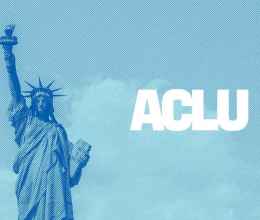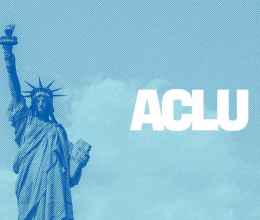
Amnesty International has issued a call for the data analytics companies Palantir and Babel Street to “immediately cease their work with the US administration related to immigration enforcement.” Amnesty’s action is an important reminder that surveillance technology not only raises critical policy issues around just what kind of a society we want to live in, but that when connected to abusive and illegal actions such as those being taken by the Trump Administration, it can also violate internationally recognized human rights standards. And that can apply to other companies besides Palantir and Babel Street.
In its letters to the two companies, the renowned global human rights group points out that companies have a “responsibility to protect human rights,” including the rights of refugees, asylum-seekers, and migrants. Amnesty writes,
The scope and meaning of this responsibility have been articulated in the UN Guiding Principles on Business and Human Rights (UN Guiding Principles). The UN Guiding Principles require all businesses, from small and medium-sized enterprises to large multinational enterprises, to avoid causing or contributing to adverse human rights impacts through their own business activities.
The Trump Administration’s systematic abuses of immigrants certainly count as human rights violations. As Amnesty and my ACLU colleagues have been pointing out, the administration has been violating human rights obligations to protect migrants and asylum seekers, violating due process rights, violating the right to free expression, and engaging in arbitrary and prolonged detention and cruel and degrading treatment. For example, as Amnesty explains, while the U.S. government may have
discretion to deny and revoke visas to applicants, they may not do so in ways that violate rights protected by the US Constitution and international human rights law, including rights to free speech and due process.
As ICE, CBP and others carrying out the Trump Administration’s human rights violations increasingly tap into surveillance infrastructures being run by private companies, those companies have an obligation not to facilitate such violations — and as Amnesty points out, also have human rights responsibilities under United Nations principles to be transparent about how they’re addressing activities in contexts where they “pose risks of severe human rights impacts.”
Unfortunately, there are a growing number of companies that are engaging in mass surveillance, including those collecting significant amounts of data through our cellular networks, video surveillance cameras, face recognition and license plate recognition systems, and other technologies that could prove useful to the Trump Administration’s efforts to target undocumented and documented immigrants and other assorted perceived enemies.
Let’s not forget that two large Chinese companies, Dahua and Hikvision, were sanctioned by the U.S. government in 2019 for their role in carrying out surveillance that was connected to the current Chinese government’s ongoing oppression of the Uighur minority in the Xinjiang province. These are not small companies; their products were widespread in the U.S. surveillance camera market. The government issued the sanctions against the companies for “enabling” and being “implicated in”
human rights violations and abuses in the implementation of China’s campaign of repression, mass arbitrary detention, and high-technology surveillance against Uighurs, Kazakhs, and other members of Muslim minority groups in the XUAR. [emphasis added]
Tragically, now we are seeing a policy, directed from the top, of intentional “human rights violations and abuses,” “repression,” and “arbitrary detention” here in the United States. Not only Palantir and Babel Street, but other companies that may be tempted to benefit from assisting in the Trump Administration’s activities, need to remember their human rights responsibilities.







